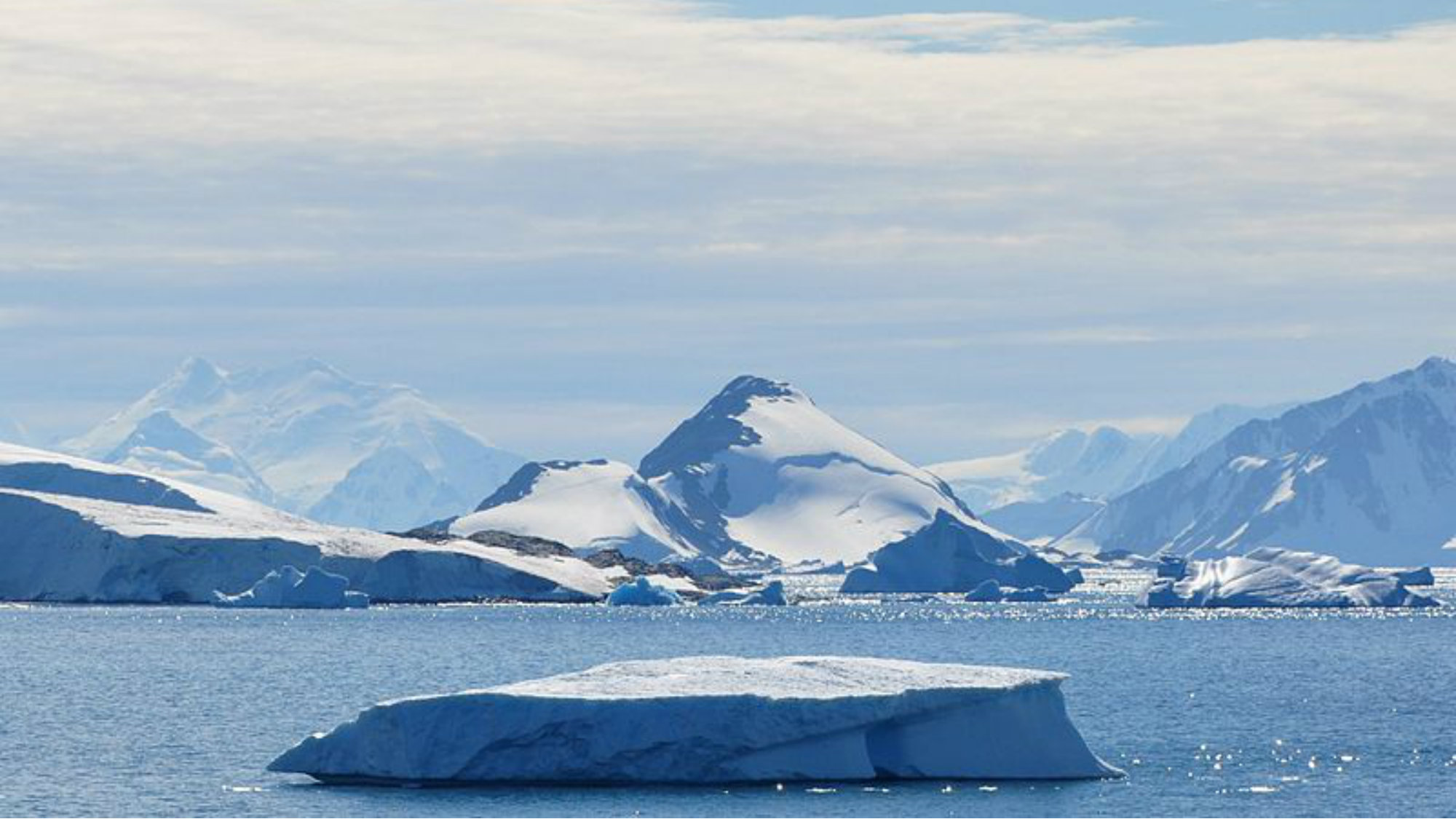Welcome to DU!
The truly grassroots left-of-center political community where regular people, not algorithms, drive the discussions and set the standards.
Join the community:
Create a free account
Support DU (and get rid of ads!):
Become a Star Member
Latest Breaking News
General Discussion
The DU Lounge
All Forums
Issue Forums
Culture Forums
Alliance Forums
Region Forums
Support Forums
Help & Search
Science
Related: About this forumWhy Antarcticas Prehistoric Forests Might Foreshadow Its Future
Hidden on the frozen continent are clues to its greener past.
SARAH LASKOWAPR. 8, 2018 6:00 AM

Antarctica was once covered in forests instead of ice. Vincent van Zeijst
This story was originally published by Atlas Obscura and appears here as part of the Climate Desk collaboration.
On their way back from the South Pole in 1912, Robert Falcon Scott and his team discovered the delicate lines of plant leaves pressed into the hard rock of Antarctica. They were “beautifully traced” fossils, Scott wrote. Despite the explorers’ fatigue and dwindling supplies, they collected samples, evidence that the icy expanse around them had once been far greener. When their bodies were discovered months later, so were the fossilized leaves of Glossopteris indica, a prehistoric tree that no longer exists, along with the preserved wood of a conifer.
The samples are some of the earliest bits of evidence that the frozen continent was once lush and covered in tall, thriving forests. They date back to the Permian period, more than 250 million years ago, when the planet was warmer than it is today. Though the land that would become Antarctica was part of the supercontinent Gondwana, it was still located at same extreme latitudes , where long stretches of light are followed by months of darkness. In those conditions a forest grew and, before it disappeared, left behind some of the best-preserved evidence of prehistoric plant life. By searching for the remains of Antarctica’s forests, scientists today are trying to discover what the world looked like all those years ago, just before one of Earth’s most dramatic extinctions wiped out most of the species living on the planet.
Because Glossopteris leaf fossils had also been found in South America, Africa, India, and Australia, they provided key evidence that the continents had once been connected as Gondwana—an idea that was a new theory at the time. Today, when researchers go fossil-hunting in Antarctica, Glossopteris leaves are among the most common finds.
“If you spend three or four hours at one site and you continually pull out materials, it’s usually the same type of plant,” says Rudolph Serbet, the collection manager in paleobotany at the University of Kansas. At most of the sites that Serbet and his colleagues visit, as part of a National Science Foundation research grant led by university professor Edith L. Taylor, they have just a few hours to sample and collect, during what will likely be their only visit to that particular site. “The chance of going back there ever again is pretty slim,” Serbet says. Only when they start to find something novel among the common—parts of plants that no one has ever seen before—do they return for more extensive work.
More:
https://www.motherjones.com/environment/2018/04/why-antarcticas-prehistoric-forests-might-foreshadow-its-future/
InfoView thread info, including edit history
TrashPut this thread in your Trash Can (My DU » Trash Can)
BookmarkAdd this thread to your Bookmarks (My DU » Bookmarks)
2 replies, 944 views
ShareGet links to this post and/or share on social media
AlertAlert this post for a rule violation
PowersThere are no powers you can use on this post
EditCannot edit other people's posts
ReplyReply to this post
EditCannot edit other people's posts
Rec (5)
ReplyReply to this post
2 replies
 = new reply since forum marked as read
Highlight:
NoneDon't highlight anything
5 newestHighlight 5 most recent replies
= new reply since forum marked as read
Highlight:
NoneDon't highlight anything
5 newestHighlight 5 most recent replies
Why Antarcticas Prehistoric Forests Might Foreshadow Its Future (Original Post)
Judi Lynn
Apr 2018
OP
PJMcK
(22,037 posts)1. Wow. Our planet is beyond remarkable.
Great article and thanks for the link, Judi Lynn!
This quote from "Raiders of the Lost Ark" comes to mind:
Belloq: Indiana, we are simply passing through history. This, this *is* history.
Humankind is a transient experience in the history of the Earth.
But are we talking 100 years or 100 million? There's the rub.